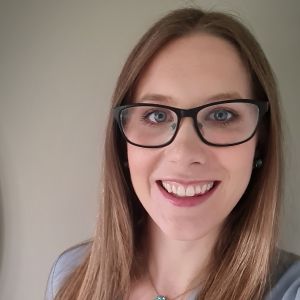Rachael Tobin
 Research Fellow, Heriot-Watt University
Research Fellow, Heriot-Watt University
Dr Rachael Tobin is currently a Research Fellow funded by the Royal Academy of Engineering where she is investigating the potential for state-of-the-art single-photon detectors for rapid, high-resolution remote sensing at long-range and in extreme conditions.
Why is gender equality important in STEM?
Diversity is extremely important in all aspects of life including STEM. A diverse team is crucial in fostering an environment where great ideas can be freely brought to the table without fear or prejudice. I do not see the sense in limiting potential progress (scientific or otherwise) through exclusion or marginalisation.
What interested you in quantum?
I originally became interested in physics due to a love of space and astronomy during childhood. Paired with a very enthusiastic science department in high school my love was cemented. Despite following a different path for a while afterwords, I eventually gave into the magnetic pull and found myself coming back to study physics at university. During this time, I had the opportunity to see the world class research that was happening in photonics and quantum science, and since then I’ve just never really looked back.
What are you working on at the moment and what are the applications of this?
I am currently focused on the use of single-photon quantum imaging systems for remote sensing applications. These systems are highly sensitive (down to the single-photon level as the name suggests!) and can therefore be used to gather target information in a range of challenging environmental conditions such as in extreme low-light scenarios or over very long distances. The applications for this are therefore numerous, and include areas such as environmental monitoring, security and defence, and autonomous vehicles. I am specifically focused on the use of short-wave infrared wavelengths which allow for systems with improved eye-safety and better atmospheric transmission.
What are your hopes for the future and is there a particular application of quantum technologies that you are excited to see the development of in years to come?
On the broader scale, my hope is that through the continued hard work and passion of everyone working in this field, that the use of single-photon detectors and other quantum technologies continues to become more mainstream, and their benefits and impact more widely known. When I look around me, I don’t doubt for a second that this will be the case! For me, I am very interested in exploring the use of this technology for environmental health applications and plan to work on this over the next few years.
What transferrable skills do you think are the most important skills for a career in quantum?
I have found that the most important skill that one can develop for a career in quantum science (or in all honesty probably any career) is the ability to be receptive and amenable to new and challenging ideas, and to learn effective ways to communicate your ideas with others. Ideas mean nothing if you can’t get them out there. Another important skill to develop is the ability to collaborate with people from both similar and different professional backgrounds. Progress is seldom an individual effort and help and input from others is an invaluable resource in the journey for knowledge.
What advice would you give to young women, who hope to pursue a career in STEM, particularly in quantum?
Although it can be very challenging, especially in the current climate, try your best to not be defined by what you are but by who you choose to be and what you choose to do. If you have a natural curiosity for STEM subjects this alone makes you a great candidate for a potential career in quantum science. Along the way you may run into situations that are less than ideal, but I assure you that you can do it and the vast majority of people who you meet along the way will be there to support you in your journey.

